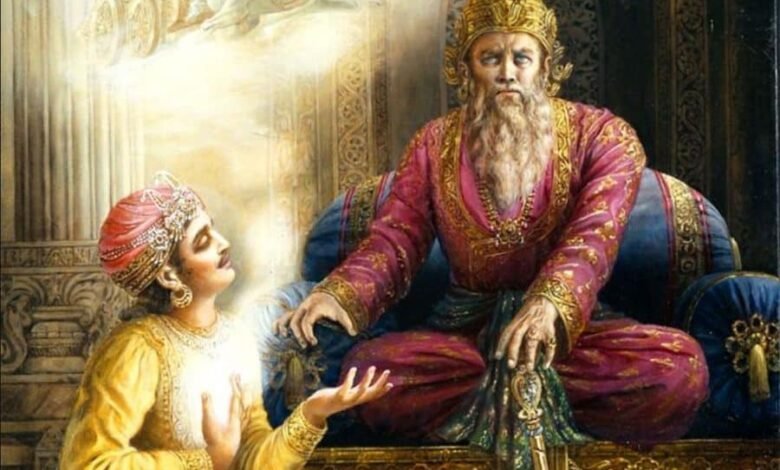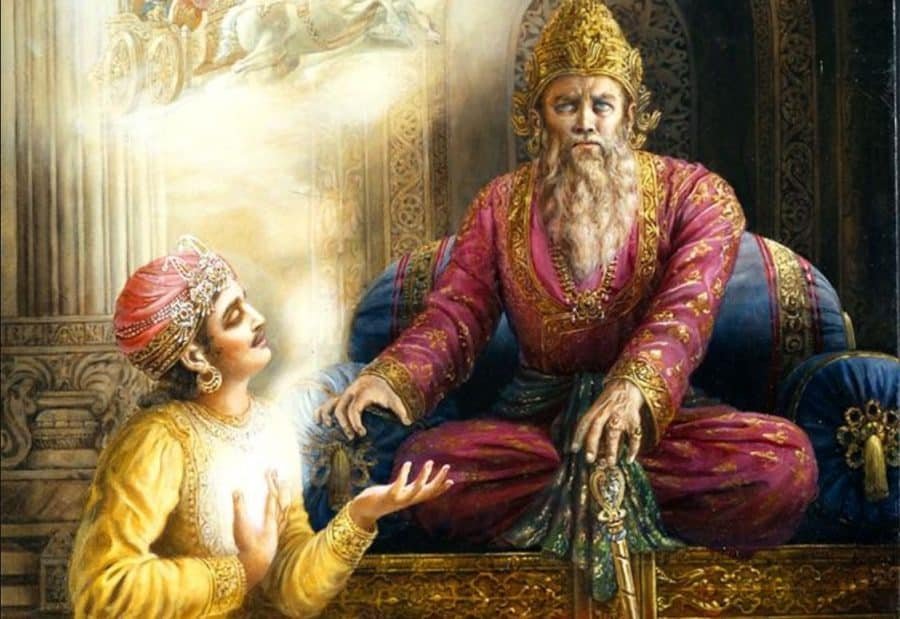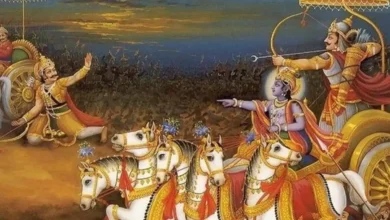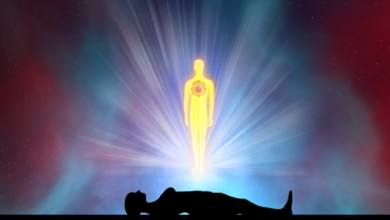Bhagavad Gita: Chapter 1, Verse 1

धृतराष्ट्र उवाच |
धर्मक्षेत्रे कुरुक्षेत्रे समवेता युयुत्सवः |
मामकाः पाण्डवाश्चैव किमकुर्वत सञ्जय ||1||
dhṛitarāśhtra uvācha
dharma-kṣhetre kuru-kṣhetre samavetā yuyutsavaḥ
māmakāḥ pāṇḍavāśhchaiva kimakurvata sañjaya
English Translation : Dhritarashtra said: O Sanjay, after gathering on the holy field of Kurukshetra, and desiring to fight, what did my sons and the sons of Pandu do?

The Dilemma of Blind Ambition: Dhritarashtra’s Moral Conflict
As the two mighty armies gathered on the sacred grounds of Kurukshetra, a palpable tension hung in the air. King Dhritarashtra, though physically blind, harbored a more profound blindness – a clouded judgment fueled by an insatiable desire for power and an unwavering favoritism toward his sons, the Kauravas.
In a moment of apparent uncertainty, Dhritarashtra turned to Sanjay, his eyes and ears on the battlefield, and posed a question that betrayed the turmoil within his soul. “What are my sons and the sons of Pandu doing on the battlefield of Kurukshetra?” he inquired, his words laced with an air of trepidation.
The mere mention of Kurukshetra, a land revered as the sacrificial arena of the celestial gods, a realm where dharma (righteous conduct) reigned supreme, stirred a glimmer of conscience within Dhritarashtra’s heart. For a fleeting moment, the weight of his actions – the unjust usurpation of the kingdom from his nephews, the Pandavas – threatened to unravel the carefully woven tapestry of his ambitions.
In that sacred space, where the echoes of ancient rituals and the whispers of divine wisdom lingered, Dhritarashtra found himself confronted by the stark reality of his choices. The land of Kurukshetra, a bastion of virtue, challenged his resolve, casting doubt upon the righteousness of his cause and the consequences that would inevitably unfold.
Yet, even as the sacred grounds of Kurukshetra beckoned him toward a path of reconciliation and justice, Dhritarashtra’s blind ambition prevailed. His desire for his sons’ dominance overshadowed any lingering pangs of guilt or moral compunction. The possibility of a peaceful resolution, which would inevitably restore the Pandavas to their rightful place, filled him with a profound sense of displeasure – a prospect he could not bear.
Thus, with a heavy heart and a mind clouded by the allure of power, Dhritarashtra posed his question, not out of genuine curiosity but as a means to reaffirm his resolve. He sought reassurance that the inevitable conflict would unfold, determining the fate of his sons and cementing their grip on the kingdom, regardless of the moral implications.
In that fateful moment, Dhritarashtra’s moral dilemma crystallized. Would he heed the call of dharma that echoed through the hallowed grounds of Kurukshetra, or would he surrender to the siren song of ambition, setting in motion a chain of events that would shake the very foundations of his kingdom and the lives of those he held dear?
Discover more from Sanatan Roots
Subscribe to get the latest posts sent to your email.




One Comment